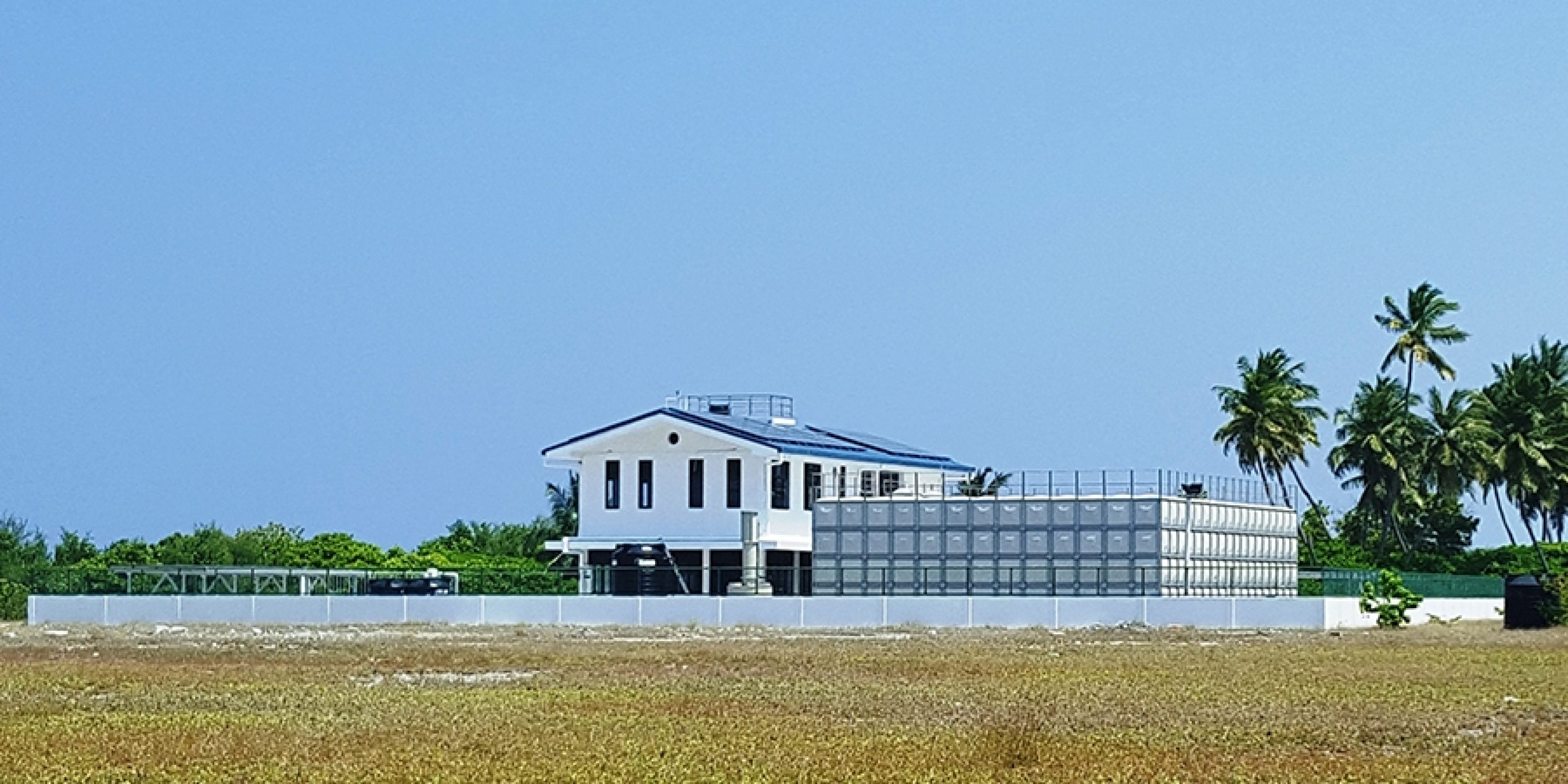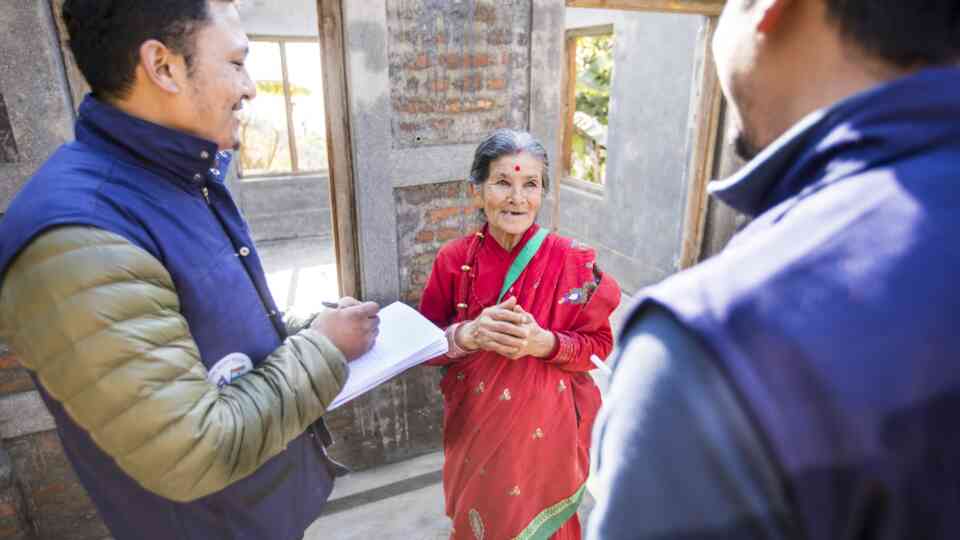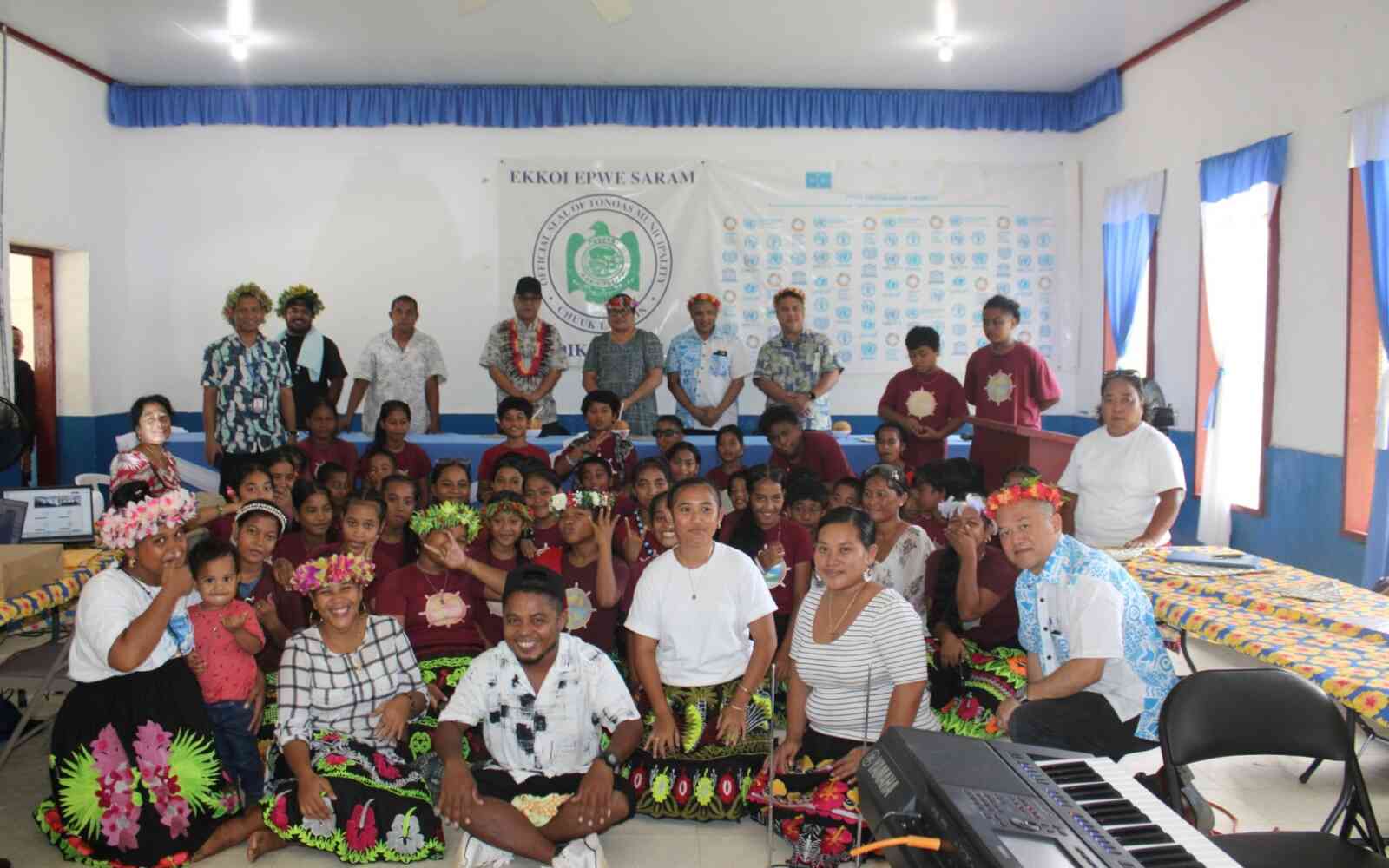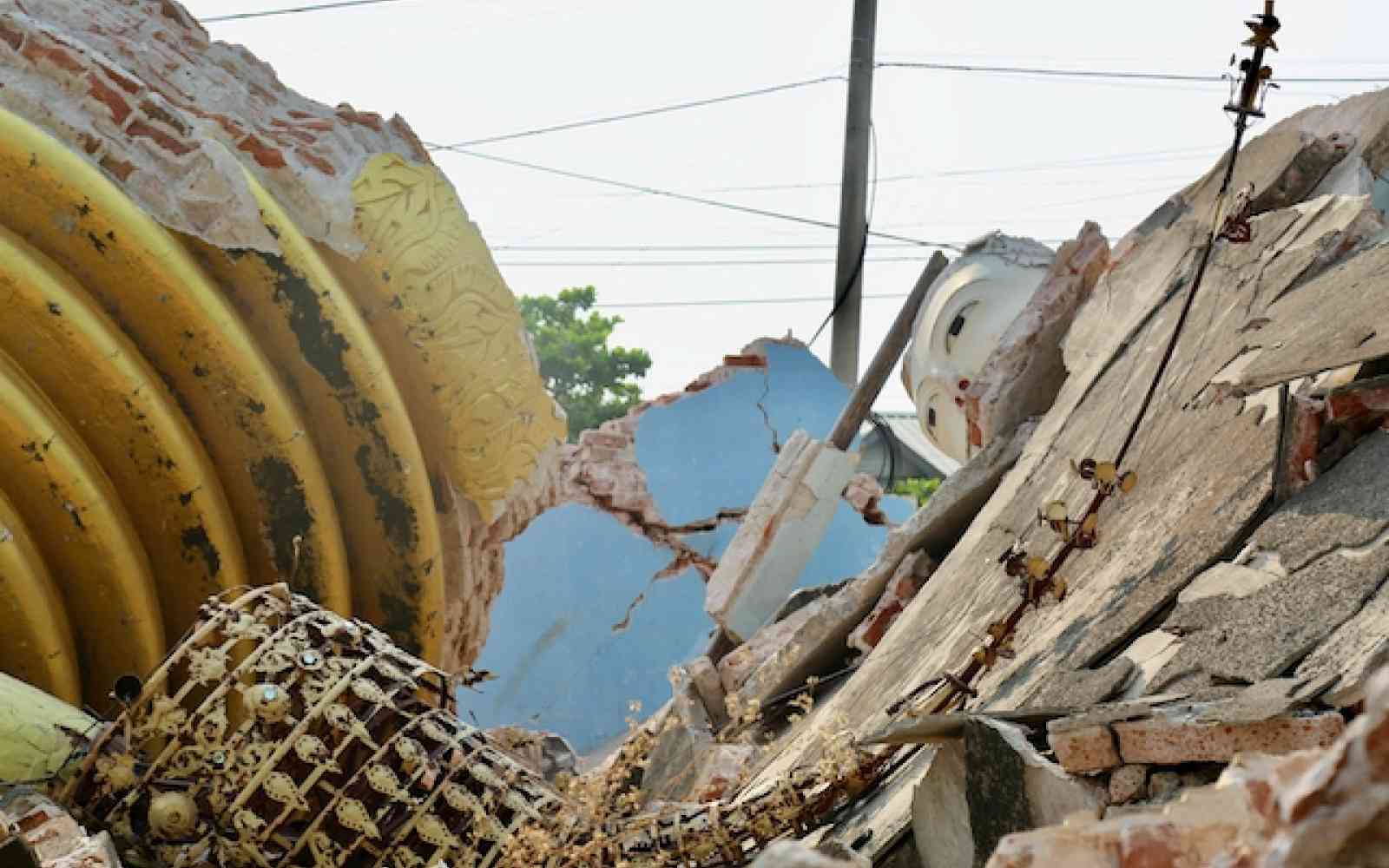The United Nations Office for Project Services (UNOPS)
Helping Maldives combat the effects of climate change

For low-lying countries like Maldives, the threat climate change poses is already as clear as the water off the country’s famous beaches.
Access to sufficient clean water in Maldives is already difficult due in part to the country's isolated location in the middle of the Indian Ocean. Overuse and pollution of groundwater, as well as droughts, put further pressure on already scarce freshwater resources. At less than two metres above sea level on average, Maldives is especially susceptible to flooding. This susceptibility, combined with the country's porous soil, means that seawater intrusion into the country's limited groundwater is a constant threat.
With funding from international partners, UNOPS has been working to improve the resilience of Maldives' island communities by ensuring reliable and safe water supply throughout the country.
"In line with UNOPS global commitment to COP21 recommendations, we will continue to support the Government of Maldives in mitigating the effects of climate change and increasing the resilience of the Maldivian people," affirmed Francoise Jacob, UNOPS Director and Representative for Sri Lanka and Maldives.

Improving water resilience
UNOPS recently completed construction and installation of integrated water supply networks for three islands: Ihavandhoo, Mahibadhoo and Gadhdhoo. Each network is composed of solar-powered water supply systems that combine rainwater collection and desalinized seawater to provide purified water. Financed by the Adaptation Fund, the network can provide a year-round supply of water to the entire population of the three islands.
"We are very happy we can access safe and reliable water for drinking, cooking and other uses from our homes," said Aminath Faruhaana, a local activist from Gadhdhoo.
UNOPS is also assisting islands in the Laamu Atoll with water resources and integrated waste management through the Low Emission Climate Resilient Development (LECReD) Programme. Focusing on freshwater restoration, the project includes repairing community rainwater harvesting systems.

These systems will help the island communities store enough water for the dry periods, and help reduce the amount of money the government spends on emergency water deliveries to these outer islands. Waste is also a growing issue in the Maldives, and UNOPS is working towards supporting the country in addressing some of the challenges caused by pollution.
The three-year project – a joint initiative with FAO, UNDP, UNFPA, UNICEF, UN WOMEN and WHO – started in November 2013. Although there are still several months left before the project ends, some of the atoll's islands have already started to reap the benefits of the system.
"My household tank is already empty this year, so I've had to go to my neighbour's house to use theirs," explained Mariyam Latheefa, a member of the Women's Development Committee on Kunahandhoo Island. "I'm very happy the rainwater harvesting community system is now available."
"The coordination of this project through LECReD Programme and UNOPS has brought people together over the issue of water security," said Ibrahim Naeem, Island Council President for Mundoo Island. "The community here is now confident they can get through the dry periods."
Building capacity for the future
Since 2014, UNOPS has been working on an integrated water supply system to provide safe water to Hinnavaru's entire population as part of a 2.5-year project funded by the United States Agency for International Development (USAID). In addition to the rainwater harvesting tanks, a desalination plant and a solar-powered water treatment facility, the completed network will also include a regional water quality testing laboratory and a groundwater recharge component. UNOPS, in close collaboration with Chemonics, is also helping to build the capacity of the water utility service provider in Hinnavaru Island to operate and maintain the system.
"Hinnavaru Island has experienced water shortages during the dry period every year for the past 10 years, so this USAID supported IWRM project is of the utmost importance to the community," said Adam Yoosuf, President of the Hinnavaru Island Council. "We've been waiting for this system for a long time – the community is extremely happy that they are going to have safe and reliable access to water."
On the island of Thoddoo, UNOPS is providing project management services for the development of an integrated water supply system. The system will use harvested rainwater and water desalination to meet the water needs of the island's population. Part of a larger initiative focused on Small Island Developing States (SIDS) in the Atlantic and Indian Oceans, the Global Environment Facility (GEF) and the Maldivian Government are financing the project.
"With the new capacity of their community water reserves, the island is now much more prepared to face a disaster, and water shortages will be significantly reduced here," explained Mariyam Shizna, a Project Officer with Maldives' National Disaster Management Authority, after visiting Kunahandhoo Island.
UNOPS is currently delivering more than $8 million in projects in Maldives.













